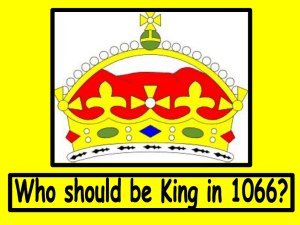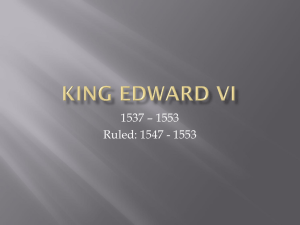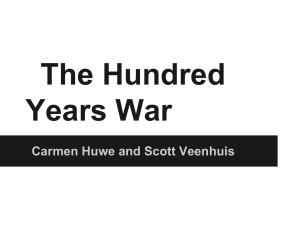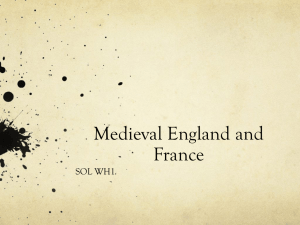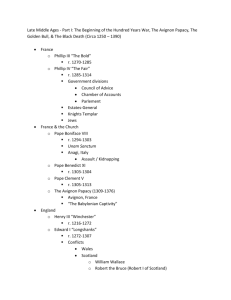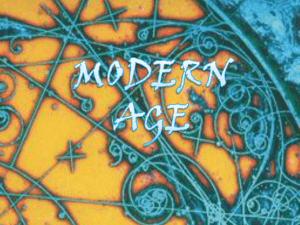File - Ossett History
advertisement
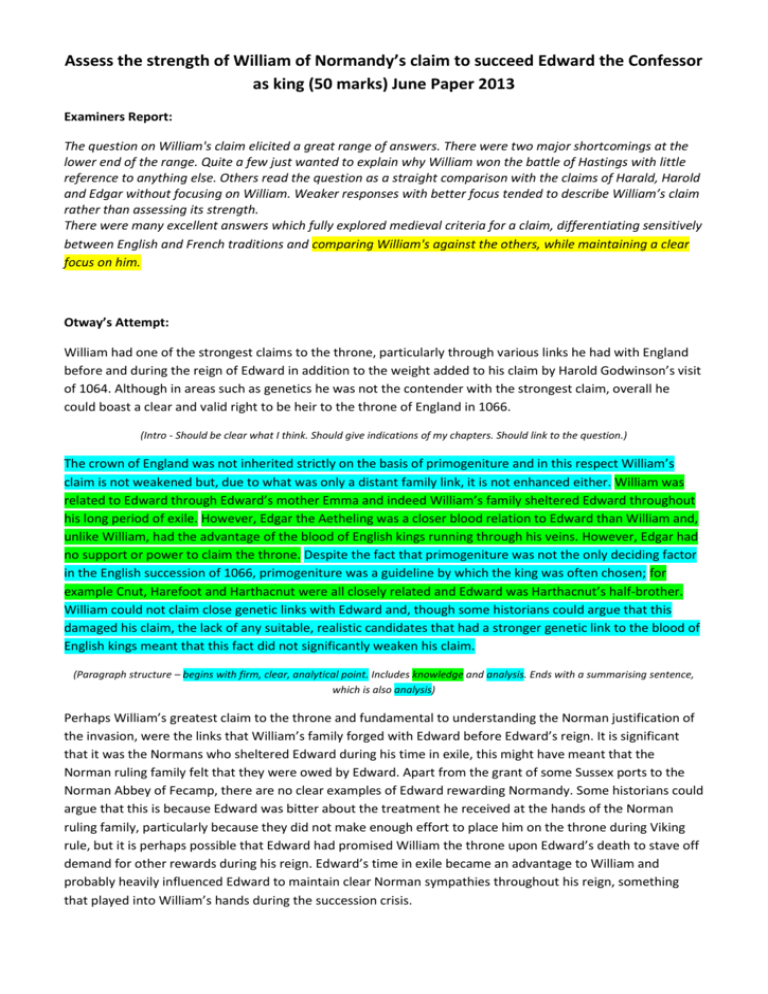
Assess the strength of William of Normandy’s claim to succeed Edward the Confessor as king (50 marks) June Paper 2013 Examiners Report: The question on William's claim elicited a great range of answers. There were two major shortcomings at the lower end of the range. Quite a few just wanted to explain why William won the battle of Hastings with little reference to anything else. Others read the question as a straight comparison with the claims of Harald, Harold and Edgar without focusing on William. Weaker responses with better focus tended to describe William’s claim rather than assessing its strength. There were many excellent answers which fully explored medieval criteria for a claim, differentiating sensitively between English and French traditions and comparing William's against the others, while maintaining a clear focus on him. Otway’s Attempt: William had one of the strongest claims to the throne, particularly through various links he had with England before and during the reign of Edward in addition to the weight added to his claim by Harold Godwinson’s visit of 1064. Although in areas such as genetics he was not the contender with the strongest claim, overall he could boast a clear and valid right to be heir to the throne of England in 1066. (Intro - Should be clear what I think. Should give indications of my chapters. Should link to the question.) The crown of England was not inherited strictly on the basis of primogeniture and in this respect William’s claim is not weakened but, due to what was only a distant family link, it is not enhanced either. William was related to Edward through Edward’s mother Emma and indeed William’s family sheltered Edward throughout his long period of exile. However, Edgar the Aetheling was a closer blood relation to Edward than William and, unlike William, had the advantage of the blood of English kings running through his veins. However, Edgar had no support or power to claim the throne. Despite the fact that primogeniture was not the only deciding factor in the English succession of 1066, primogeniture was a guideline by which the king was often chosen; for example Cnut, Harefoot and Harthacnut were all closely related and Edward was Harthacnut’s half-brother. William could not claim close genetic links with Edward and, though some historians could argue that this damaged his claim, the lack of any suitable, realistic candidates that had a stronger genetic link to the blood of English kings meant that this fact did not significantly weaken his claim. (Paragraph structure – begins with firm, clear, analytical point. Includes knowledge and analysis. Ends with a summarising sentence, which is also analysis) Perhaps William’s greatest claim to the throne and fundamental to understanding the Norman justification of the invasion, were the links that William’s family forged with Edward before Edward’s reign. It is significant that it was the Normans who sheltered Edward during his time in exile, this might have meant that the Norman ruling family felt that they were owed by Edward. Apart from the grant of some Sussex ports to the Norman Abbey of Fecamp, there are no clear examples of Edward rewarding Normandy. Some historians could argue that this is because Edward was bitter about the treatment he received at the hands of the Norman ruling family, particularly because they did not make enough effort to place him on the throne during Viking rule, but it is perhaps possible that Edward had promised William the throne upon Edward’s death to stave off demand for other rewards during his reign. Edward’s time in exile became an advantage to William and probably heavily influenced Edward to maintain clear Norman sympathies throughout his reign, something that played into William’s hands during the succession crisis. Relating to the consequences for William of the time prior to Edward’s ascension to the throne in 1043, is the contact Edward maintained with Normandy throughout his reign which had a profound positive impact on William’s claim. It is stated in some contemporary sources that William was explicitly promised the throne in 1051, at the height of the crisis with the Godwin family. Whilst it is easy to claim that there is not enough evidence for this, this promise is quite likely because Normandy was a powerful ally and Edward needed all the allies that he could get during those troubled months. In the absence of any obvious heir, particularly with the Godwins in exile and Edith in a convent, Edward had nothing to lose if he did offer William the throne. Edward also kept Normans such as Robert of Jumieges at court during his reign and must have encouraged trade by granting ports to Norman monks. Any link to Normandy, and there were several, during the reign of Edward, served only to lay the foundations for a Norman king of England and enhanced the claim to the throne of William. Initially, William’s claim to the throne was not as strong as the claim of Harold Godwinson who was readily accepted by the Witanagemot in 1066, but the events of 1064 played a significant part in further strengthening William’s claim. Famously, Harold was shipwrecked at Ponthieu but William was on hand to remove Harold from the custody of Count Guy and offer Harold some of his own hospitality. Harold was treated well but the wily William must have known a golden opportunity had presented itself and he took full advantage. By having Godwinson knighted William was able to portray Harold as his vassal, thus such a man should not be king ahead of William himself. More significantly, by making Harold swear an oath on religious relics, he could portray Harold as a dishonourable man and a perjurer. This was crucial to William as it lead to his claim being endorsed by the papacy. Godwinson’s journey to Normandy was a disaster for him but served as the cornerstone of William’s claim to the English throne, helping him to receive powerful and influential support for his claim in the shape of the Pope. Undoubtedly William had a strong claim to the throne of England. He could claim a genetic link to Edward, unlike Godwinson, he could claim he was promised the throne, unlike Hardrada and, significantly, he gained papal support. Prior to 1064 Godwinson held the strongest claim but, through luck and ruthless cunning, by the time Edward died in 1066 William had a stronger claim to the throne than all of his potential rivals. Useful words in this essay that you might have used: Succession Fundamental Primogeniture Some historians might argue It is claimed by/stated in some contemporary sources that Witanagemot (Witan) Magnates Significant Vassal (Somebody who owes you service and is beneath you) Perjurer (Somebody who deliberately testifies falsely under oath)

